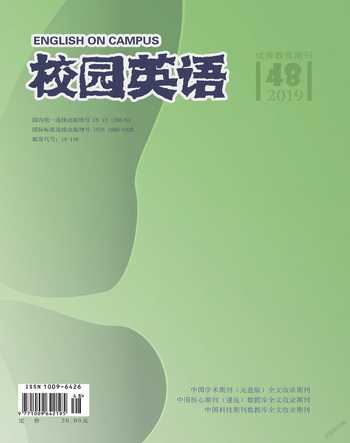On Translators’ Non-linguistic Skills and Approaches to Developing Them
【Abstract】Academic research has long focused on bilingual competence when it comes to translators’ skills. The author, however, shifts the attention to non-linguistic skills and gives solutions to the development of these skills.
【Key words】 translators; non-linguistic skills; approaches
【作者簡介】黃培鑫,廣東科技學(xué)院。
Ⅰ. Introduction
The translation market abounds with both opportunities and challenges. With a view to assisting translators in professional development, this paper analyzes a crucial set of non-linguistic skills, including quick learning ability, sensitivity to cultural differences and mastery of state-of-the-art translation technology. Moreover, the paper examines threes approaches to developing these three skills.
Ⅱ. Three essential non-linguistic skills
1.Quick learning ability. Translators, often required to deal with texts which cover various fields, ranging medicine and law to engineering and construction, are supposed to be quick learners. They have to take in subject knowledge quickly in order to have a thorough understanding of the source texts (Sharkas, 2014). A typical example is the word “term” (Olga, 2012). He examines different meanings of this word in various contexts, arguing that without a correct understanding of legal knowledge, translators are very likely to misunderstand the word “term” and even the whole source text.
2. Cultural awareness. Sensitivity to cultural differences plays an equally important role in translation. Aware of cultural differences, translators are able to identify the underlying meaning of original texts in a high-context cultural background. Another typical example is literary translation, which is complicated by differences in history, ways of thinking, traditions and customs between countries. One result is that the same image often has various, or even contrasting associations in different cultures. Shi (2014) discusses the connotation of a dragon in both Chinese and western cultures, pointing out that the animal are symbolic of power and authority in Chinese culture while in western culture, it is more often than not viewed as evil. A lack of cultural awareness may lead to the wrong interpretation in the target language.
3.Mastery of translation technology .The rapid technological evolution has given rise to state-of-the-art translation software. Translation technology has become a survival skill for translators who are competing globally. Wu and Pan (2013) state that translators are faced with an increasing workload while maintaining good quality of translation texts. The paradox could somewhat resolved by translation memory, which speeds up the translation process and ensures consistency.
Ⅲ. Approaches to developing these skills
Three approaches are examined in this part to help translators develop the three skills mentioned above.
1. Extensive and intensive reading. Extensive reading enables translators to have a general understanding of the field within which they are working. A further understanding of the subject could be achieved by intensive reading. Applied translation, in particular, is loaded with technical terms, which necessitates reliable reference books. Wakabayashi (1996) points out that tool books, as authoritative sources of terminology and phraseology, play a key role in this scenario.
2. Exposure to different cultures. Arguably cultural awareness is best developed in different cultures. Ways like spending some time in a foreign country or communicating with people from other cultures are instrumental in cultivating culturally sensitive minds. Translators are also well-advised to make summaries of cultural differences when they show up.
3. Participating in training in translation software. Translation software such as Trados and Visualtran could be an integral part of training aimed at translators. Wu and Pan (2013) summarize translation technology as two systems, namely, machine translation system and translation memory system. Training projects are provided by universities and translation agencies alike in on-line and off-line forms and are readily accessible to translators.
Ⅳ. Conclusion
Working in a world reshaped by technology, translators are confronted with more intense competition than ever. Non-linguistic skills deserve equal attention in comparison with traditionally valued linguistic skills.
References:
[1]Olga, B. (2012). Legal translation: principles of success. Contemporary Readings in Law and Social Justice, 2012(1),570-590.

